p. John Mary Jesus
Unplanned
 Unplanned is one of recent years' most striking witnesses to truth. Abby Johnson, a former director of an abortion clinic, recounts her pathway from abortion to the fight for life. This book is highly valuable thanks to the author's first hand knowledge of, and long-standing complicity in, what she takes care to describe Planned Parenthood's abortion industry. Her concern for women, children and family brought her to work for this organisation, led her to profound shock and disillusionment in the ideas about women and life which it promotes, and drove her to a choice for life. Abby witnesses to both the good intentions of many who work for the abortion of children in the mother's womb, and to the culture of false compassion which offers death as a solution. She now consecrates her time and energy to offering women real and constructive options with regard to unwanted or traumatically concieved children. A gripping and enlightening read!
Unplanned is one of recent years' most striking witnesses to truth. Abby Johnson, a former director of an abortion clinic, recounts her pathway from abortion to the fight for life. This book is highly valuable thanks to the author's first hand knowledge of, and long-standing complicity in, what she takes care to describe Planned Parenthood's abortion industry. Her concern for women, children and family brought her to work for this organisation, led her to profound shock and disillusionment in the ideas about women and life which it promotes, and drove her to a choice for life. Abby witnesses to both the good intentions of many who work for the abortion of children in the mother's womb, and to the culture of false compassion which offers death as a solution. She now consecrates her time and energy to offering women real and constructive options with regard to unwanted or traumatically concieved children. A gripping and enlightening read!
"Abby Johnson quit her job in October 2009. That simple act became a national news story because Abby was director of a Planned Parenthood clinic in Texas who, not long after assisting in an actual abortion procedure for the first time, crossed the line to join the Coalition for LIfe. What happened in that clinic to cause this Planned Parenthood leader and Employee of the Year to take such drastic action? And how did Planned Parenthood react to her abrupt departure?
Join Abby as she reveals her full story in Unplanned: a heart-stopping personal drama of life-and-death encounters, a courtroom battle, and spiritual transformation. Abby's unique vantage point from both sides of the abortion clinic property line shines light and compassion into the political controversy that surrounds this issue. For anyone who cares about the life-versus-rights debate and helping women who face crisis pregancies, Unplanned is a must-read."
(Unplanned, Abby Johnson, Saltriver 2010)
Strange Vagabond of God
John Bradburne is one of Great Britain's most recent figures of holiness. 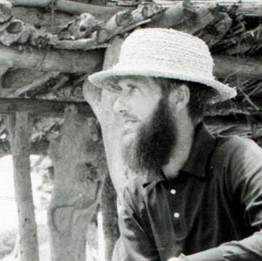 He died in 1979, killed by guerilla fighters in Zimbabwe whilst caring for leppers. A convert from the Anglican Church, his love of Christ in the Eucharist and Our Lady was immense. The following book is a biography written by a friend and priest, Father John Dove. Here's the back cover resume, and one of his poems.
He died in 1979, killed by guerilla fighters in Zimbabwe whilst caring for leppers. A convert from the Anglican Church, his love of Christ in the Eucharist and Our Lady was immense. The following book is a biography written by a friend and priest, Father John Dove. Here's the back cover resume, and one of his poems.
"John Bradburne's life was a remarkable spiritual odyssey. After wartime service on the Indian subcontinent, he became a perennial pilgrim, never at home in the world, not even in his native England. Restless wanderings lead him through Europe to the Holy Land, to a succession of religious communities, and ultimately to Africa where he met a violent death during the Zimbabwean war of independence. This deeply sympathetic biography, written by a personal friend, is enriched by extensive quotations from John Bradburne's poems and diaries, offing a rare insight into the mind and character of this quite extraordinary man. In particular, the account of his life among the lepers, and the astonishing happenings during his funeral service, make it clear that here was a man singled out for sanctity, marked with a special charisma. In the twenty years since his death, a devotion to his memory as sprung up in sothern Africa. Poet, mystic, hermit, and vagabond, John Bradburne's strange life was a ceaseless quest for God."
(Strange Vagabond Of God, Father John Dove, s.j., Gracewing 1997)
From John Bradburne's poems:
Strays and WAIFERS: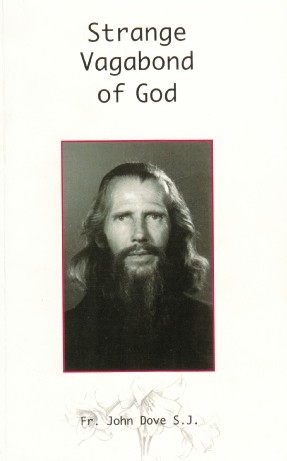
To a wandering jew (all my eye is set on fancies....)
Strange vagabond, who knows not what to seek!
The rest you lack flies not thus far afield:
Much babel tumult renders hearing weak,
And, so replete with sights, your sight is sealed!
Far out you stray to find your Inmost Soul,
While souls His Eloquence in stillness find
Be still then! let God's Silence make you whole,
For He Alone can calm your troubled mind:
Your soul's Desire is nearest though unseen,
Your Haven of Perfection's close at hand,
And that wide wandering was fevered dream:
God's love within you is your Native Land!
Then seek none other, never more depart -
For you are homeless save God keeps your heart.
The Joy of man's desiring is the Lord,
And where the Treasure is, there is the Heart:
What then, if having wandered far abroad
A man finds God at Home? will he depart
Again? to seek his Treasure far and wide,
When he has found the House where it is safe:
Will he reject his Saviour Crucified?
The Risen Christ lives (like a little waif')
Hidden, unheard, uncared for by the World
Which passes busily His Sacrament,
In quest of treasure which must soon be furled
(With all the perishable firmament)
And put away for ever, by that KING
Who hides our folly in His Suffering!
The Face Of God
Roger Scruton, an English philosopher, has recently published a book formed from the Gifford Lectures he gave at St Andrews University, Scotland, in 2010. He adresses the question of the existence of God in what I think is a highly pertinent way - the posited absence of God being not a triumph of humanity but rather modern man's most tragic crisis of meaning... a meta-crisis! He explores what most people admit to be a gradual destruction of man in our society and argues that this is, through being a destruction of man, also a gradual loss of our natural discovery of God.
"Roger Scruton explores the place of God in a disenchanted world. His argument is a response to the atheist culture that is now growing around us, and also a defence of human uniqueness. He rebuts the claim there is no meaning or purpose in the natural world, and argues that the sacred and the transcendental are “real presences”, through which human beings come to know themselves and to find both their freedom and their redemption.
In the human face we find a paradigm of meaning. And from this experience, Scruton argues, we both construct the face of the world, and adress the face of God. We find in the face both the proof of our freedom and the mark of self-conciousness. One of the motivations of the atheist culture is to escape from the eye of judgement. You escape from the eye of judgement by blotting out the face: and this, Scruton argues, is the most disturbing aspect of the times in which we live. In his wide-ranging argument Scruton explains the growing sense of destruction that we feel, as the habits of pleasure seeking and consumerism deface the world. His book defends a consecrated world against the habit of deconsecration, and offers a vision of the religious way of life in a time of trial."
(The Face of God, Roger Scruton - Continuum 2012)
For more works by Roger Scruton: www.roger-scruton.com
Dibs, in search of self
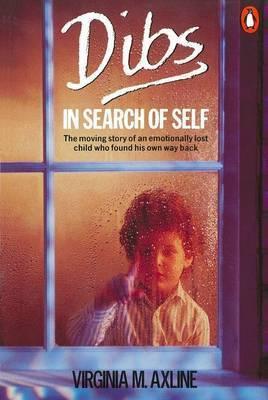 Another thought provoking read, this time less recent and by V. M. Axline, a child psychotherpist. Through this impressive story of a boy she names "Dibs", Axline shows clearly and beautifully how a child is an entire person just beginning to open, develop and grow in uniqueness, and what a delicate, sensitive and profound reality that is. Both heart-wrenching in its revealing of how such vulnerability can be so easily trampled, this day by day description of the steps the author took with this child also astonishes the reader with the strength and depth of even a young child's will to live, love, fight for truth in his life and even to forgive.
Another thought provoking read, this time less recent and by V. M. Axline, a child psychotherpist. Through this impressive story of a boy she names "Dibs", Axline shows clearly and beautifully how a child is an entire person just beginning to open, develop and grow in uniqueness, and what a delicate, sensitive and profound reality that is. Both heart-wrenching in its revealing of how such vulnerability can be so easily trampled, this day by day description of the steps the author took with this child also astonishes the reader with the strength and depth of even a young child's will to live, love, fight for truth in his life and even to forgive.
“He would not talk. He would not play. Judged mentally defective, he was suddenly oblivious both to other children and to his teacher; in reality he was a brilliant, lonely child trapped in a prison of fear and rage, a prison from which only he could release himself.”
...Dibs had had his dark moments and had lived for a while in the shadows of life. But he had had the opportunity to move out of those dark moments and discover for himself that he could cope with the shadows and sunshine in his life.
Perhaps there is more understanding and beauty in life when the glaring sunlight is softened by the patterns of shadows. Perhaps there is more depth in a relationship that has weathered some storms. Experience that never disappoints or saddens or stirs up feelings is a bland experience with little challenge or variation in colour. Perhaps when we experience confidence and faith and hope that we see materialise before our eyes this builds up within us a feeling of inner strength, courage, and security.”
(Dibs, In Search Of Self - Penguin Books 1990)
And I Am Afraid Of My Dreams
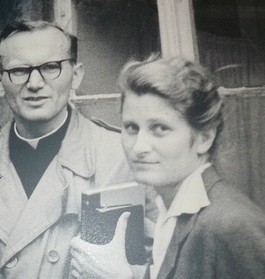 The following is the author's note in a book recently published by Wanda Poltawska, friend of Pope John Paul II, and survivor of Nazi concentration camps. Throughout her life after the camps, Wanda sought for and found ways back to an understanding of man that was no longer filled with the black despair inspired by the experience of mankind within the camps and engrained in all but the very strongest of the inmates and guards. As she eloquently and powerfully expresses, such a search for the meaning of man's existence within his cohabitation with brokenness and evil, is becoming ever more pertitent in today's world where increasing numbers of young people seek out help on precisely the questions she painstakingly found answers to. May we still speak of truth about man today, or are we too living in a world that is rejecting humanity?
The following is the author's note in a book recently published by Wanda Poltawska, friend of Pope John Paul II, and survivor of Nazi concentration camps. Throughout her life after the camps, Wanda sought for and found ways back to an understanding of man that was no longer filled with the black despair inspired by the experience of mankind within the camps and engrained in all but the very strongest of the inmates and guards. As she eloquently and powerfully expresses, such a search for the meaning of man's existence within his cohabitation with brokenness and evil, is becoming ever more pertitent in today's world where increasing numbers of young people seek out help on precisely the questions she painstakingly found answers to. May we still speak of truth about man today, or are we too living in a world that is rejecting humanity?
"To the reader of today and tomorrow:
You might think that no one cares anymore about what happened during the Second World War, so many years ago. But that is not the case. Even though the first generation born after the war, our children, did not want to hear about it, the next generation, our grandchildren, not only want to hear about it but they are searching for knowledge about this period. They vorasciously read this book and keep asking, “how could anyone have survived something like that?”
What are they searching for in this book and what do they find?
I think that they are looking for the truth about man, and what they find are values, values which are disappearing from our world, although they are immortal.
My story about our youth shows something that the so-called world of “western civilisation” is unable to demonstrate - the fact that our human nature can stretch between heriosm and bestiality.
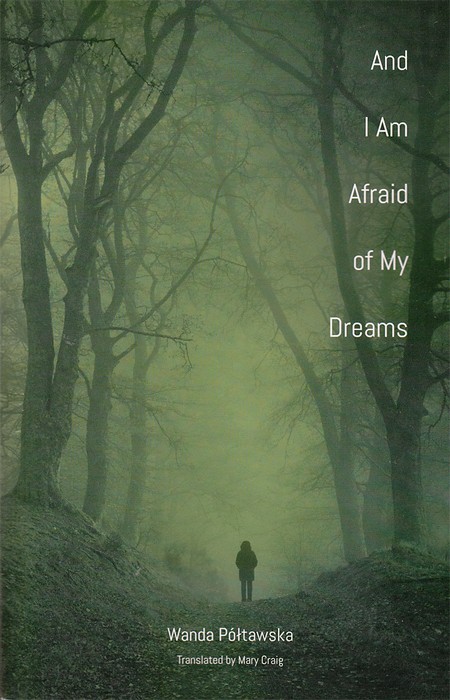
So, my story about the experiences of my generation is a warning for young people, because everybody can become like a member of the Gestapo, or on the other hand, like Maksymilian Kolbe, or the woman I describe in my book, Wladka Dabrowska, who was ready to give her life to save that of a young girl, Krysia Czyz.
My account is a witness to crime and heroism. It demonstrates the strength of the human spirit, the meaning of faith in God and faith in man. It shows the different forms of beauty: the beauty of friendship and patriotism; the beauty of nature, in a flower rediscovered in a single stem of lilac or in the view of the silhouette of trees in the horizon; the beauty of a poem; and the healing value of humour.
Against the background of my story, the full dimension of the human being is revealed and it prompts the reader to reflect: be careful, because it could happen that you will not even notice when you become insensitive to human misery, when you have become like an SS-man. Think about it!
After many years of working as a psychiatrist I can say that this book helps me in my work with young people. When they read it, they start to think, and that is why I believe it should be given to succeeding generations. The values that you find in it are universal and unchanging. Every human person can become more or less humane - and humanity is not less threatened today than it was during the time of thi story."
Wanda Poltawska
Krakow, Poland
2012
Come be my light
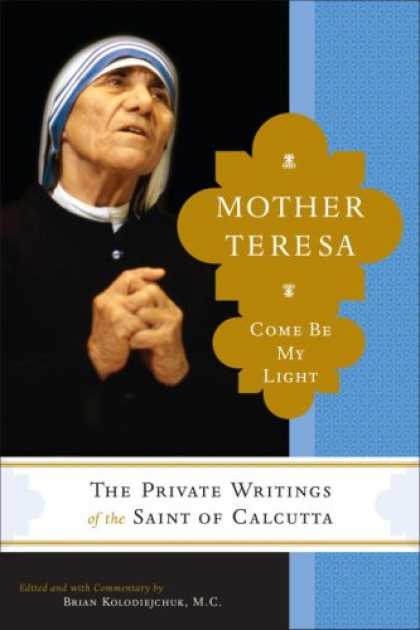 Here is an excerpt from the end of Come be my light, the private writings of Mother Teresa of Calcutta. As the editor comments, it's a beautiful story she tells here and one which illustrates her entire life. What's particularly powerful to see is the link between love and light. Mother Teresa, one of this world's greatest lovers, was called by Jesus to "be his light" and in this passage she describes a simple act of love, reaching out to someone and not just waiting for people to come to us, actually as a powerful light... the light of love... a love which tells the person the radical truth that they are loveable, desired, chosen and beautiful, instead of the lie that they are cheap, empty, worthless or merely superficially beautiful or valuable. Lets not forget this amazing capacity we have to love really, to seek out the poor, the lonely, the abandonned... to be God's light, He who made man in His own image.
Here is an excerpt from the end of Come be my light, the private writings of Mother Teresa of Calcutta. As the editor comments, it's a beautiful story she tells here and one which illustrates her entire life. What's particularly powerful to see is the link between love and light. Mother Teresa, one of this world's greatest lovers, was called by Jesus to "be his light" and in this passage she describes a simple act of love, reaching out to someone and not just waiting for people to come to us, actually as a powerful light... the light of love... a love which tells the person the radical truth that they are loveable, desired, chosen and beautiful, instead of the lie that they are cheap, empty, worthless or merely superficially beautiful or valuable. Lets not forget this amazing capacity we have to love really, to seek out the poor, the lonely, the abandonned... to be God's light, He who made man in His own image.
“In a book resonating with Mother Teresa’s voice it seems appropriate to grant her the last word. The following is a story she told that wonderfully expresses the heart of her life and mission. It also invites each one to “be His light” by partaking in these humble deeds of love and compassion that may seem insignificant but are, in fact, nothing less than the means of radiating God’s love to each person we meet, thus transforming, little by little, the darkness of the world into His light:
I will never forget the first time I came to Bourke and visited the sisters. We went to the outskirts of Bourke. There was a big reserve where all the Aborigines were living in those small shacks made of tin and old card-board and so on. Then I entered one of those little rooms. I call it a house but it’s only one room, and inside the room everything. So I told the man living there, “Please allow me to make your bed, to wash your clothes, to clean your room.” And he kept saying, “I’m alright, I’m alright.” And I said to him, “But you will be more alright if you allow me to do it.” Then at the end he allowed me. He allowed me in such a way that, at the end, he pulled out from his pocket an old envelope, and one more envelope, and one more envelope. He started opening one after another, and right inside there was a little photograph of his father and he gave me that to look at. I looked at the photo and I looked at him and I said, “You are so like your father.” He was so overjoyed that I could see the resemblance of his father on his face. I blessed the picture and I gave it back to him, and again one envelope, second envelope, third envelope, and the photo went back in the pocket near his heart. After I cleaned the room I found in the corner of the room a big lamp full of dirt and I said, “Don’t you light this lamp, such a beautiful lamp. Don’t you light it?” He replied “For whom? Months and months and months nobody has ever come to me. For whom will I light it?” So I said “Won’t you light it if the Sisters come to you?” And he said “Yes.” So the sisters started going to him for only about 5 to 10 minutes a day, but they started lighting that lamp. After some time he got into the habit of lighting. Slowly, slowly, slowly, the Sisters stopped going to him. But they used to go in the morning and see him. Then I forgot completely about that, and then after two years he sent word - “Tell Mother, my friend, the light she lit in my life is still burning.”
The Christian vocation: an experience
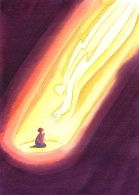 Jesus responded, Come and see. It happens very quickly for it is an experience. A personal contact is always a question of experience. One only really knows someone through experience, and not otherwise. One may ofcourse know someone in a historical way. One can know someone based on what others say about him, but this is never direct knowledge. Direct knowledge implies being with a person, living with him.
Jesus responded, Come and see. It happens very quickly for it is an experience. A personal contact is always a question of experience. One only really knows someone through experience, and not otherwise. One may ofcourse know someone in a historical way. One can know someone based on what others say about him, but this is never direct knowledge. Direct knowledge implies being with a person, living with him.
He said to them, “Come and see.” They came and saw where He was staying, and they remained with Him that day. How simple it is. When one stays, one must stay for a while. They remained with Him that day, the whole day. It was about the tenth hour. This is John’s personal observation: to show that it was experimential, the time is noted. When one stay with someone for a long time and time passes quickly, one says afterwards, “How long have we been here? We’ve spent the entire day!” It is easy to understand, especially in countries where sunlight alone indicates the hour. In the desert, one tells time by the light on the sun. They remained with Jesus, with the Lamb, the entire day. It was about the tenth hour, that is, four o’clock in the afternoon. After that, they left.
Book Review: Robert Macfarlane, author
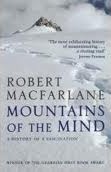 Writer Robert Macfarlane, of Cambridge, Great Britain, recently published the third book in a "loose trilogy about landscape and the human heart". Through tracing the history first of man's relationship with mountains, then with wilderness and lastly with pathways, Macfarlane finds some of the most insightful ways to uncover and explore man's own depth, height, nature and quests.
Writer Robert Macfarlane, of Cambridge, Great Britain, recently published the third book in a "loose trilogy about landscape and the human heart". Through tracing the history first of man's relationship with mountains, then with wilderness and lastly with pathways, Macfarlane finds some of the most insightful ways to uncover and explore man's own depth, height, nature and quests.
Indeed, the natural world around us is not simply an object of admiration or exploitation... Man has lived with, struggled with, discovered, used, enjoyed and ignored the physical world, the history of which is so intimately woven into his own.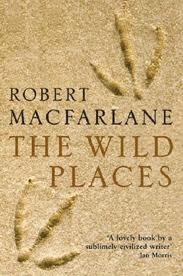
The author's uniquely skillful yet beautifully simple usage of English, at times humble and ordinary and often brilliantly poetic, allows him to paint true masterpieces where the deftness of expression is a quite wonderful demonstration of how words can communicate something of the deepest and most subtle of man's truest experiences. Reading these books is an essential reminder of how depth of thought is available to all, however cheap an environment we have come to live in.
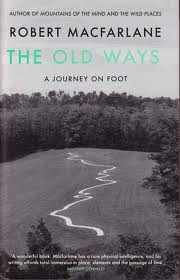 Mountains of the mind, a history of fascination (Granta 2003)
Mountains of the mind, a history of fascination (Granta 2003)
The wild places (Granta 2007)
The old ways, a journey on foot (Hamish Hamilton 2012)
Approaches To Reality (1)
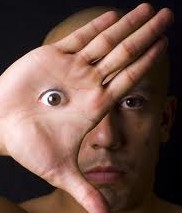 The following translation of a book by Brother Samuel Rouvillois is about science and philosophy. Despite walking hand in hand at the beginnings of western thought, the two have in recent centuries more often been brought into harsh opposition with eachother. This apparent clash of approaches to reality has the advantage of bringing us to question once again what understanding of reality is... or what type of knowledge leads us the closest to grasping something about the world and ourselves. The original French title of the book is "Quel reel?"... emphasising that philosophy and modern science not only often disagree about what reality is but now offer very different approaches to knowledge itself, such that when attempting understanding of things they seem to be talking about completely different realities.
The following translation of a book by Brother Samuel Rouvillois is about science and philosophy. Despite walking hand in hand at the beginnings of western thought, the two have in recent centuries more often been brought into harsh opposition with eachother. This apparent clash of approaches to reality has the advantage of bringing us to question once again what understanding of reality is... or what type of knowledge leads us the closest to grasping something about the world and ourselves. The original French title of the book is "Quel reel?"... emphasising that philosophy and modern science not only often disagree about what reality is but now offer very different approaches to knowledge itself, such that when attempting understanding of things they seem to be talking about completely different realities.
We hope to progressively post a translation of the entire book.
Approaches To Reality (1)
Foundations for a dialogue between science and philosophy
By Br. Samuel Rouvillois
Introduction
In today’s world modern science is experiencing a deciding moment in its history. Born with Galileo and cartesian thinking, it saw triumph in the domains of both discovery and thinking, to the point of becoming a philosophical model of thought in Augustus Comte’s positivism. But at the very moment of the explosive development of contemporary science, as it is enjoying unprecedented success through the mastery of reality it affords, it is paradoxically entering into a profound and unfamiliar crisis in its relationship with the truth.
Indeed, though at the height of its dominion, the scientific project which aimed to offer humanity objective, unified and universal knowledge, is today coming under question.
(to be continued...)
Book Review: "Que celui qui n’a jamais péché…"
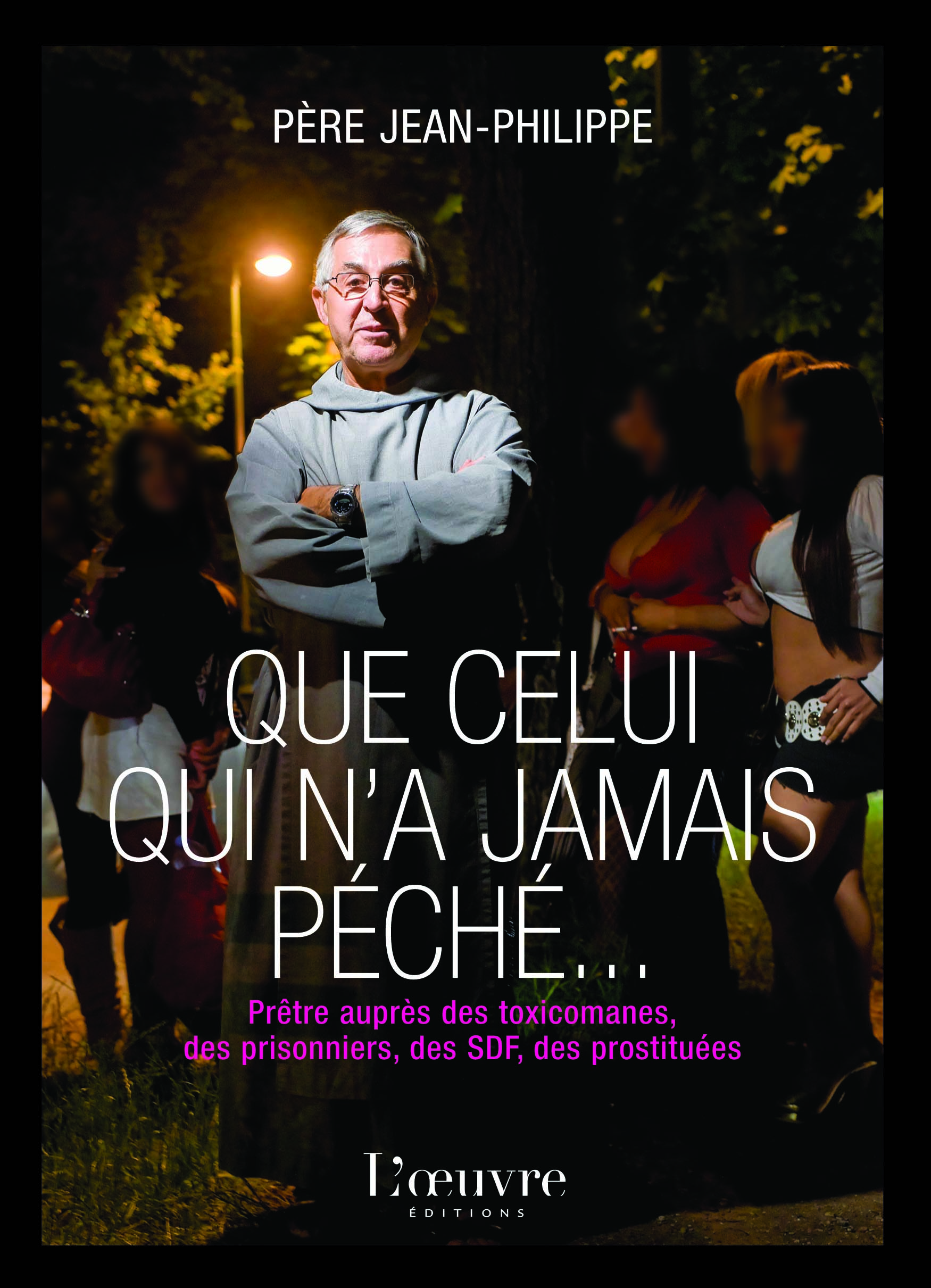 In this testimony ("Let He Who Has Never Sinned..."), father Jean-Philippe tells of his experiences as a priest for prisoners, homeless, drug addicts and prostitutes. His testimony also includes both the painful and the redemptive apects of his own life... from the violence he suffered as a child to his meeting with Jean Vanier of l'Arche... from the alchoholism of his parents to his encounter with father Marie-Dominique Philippe, founder of the community in which he is now a brother and priest. Having begun the organisation Saint Jean Esperance, a full time program for young drug addicts, Father Jean-Philippe now lives in Paris and spends his daytime hours as chaplain of a prison, and his nights in the Bois de Boulogne, a red light district where he and a team of volunteers spend hours talking, laughing, weeping and praying with transvestite prostitues... father Jean-Philippe's "proteges".
In this testimony ("Let He Who Has Never Sinned..."), father Jean-Philippe tells of his experiences as a priest for prisoners, homeless, drug addicts and prostitutes. His testimony also includes both the painful and the redemptive apects of his own life... from the violence he suffered as a child to his meeting with Jean Vanier of l'Arche... from the alchoholism of his parents to his encounter with father Marie-Dominique Philippe, founder of the community in which he is now a brother and priest. Having begun the organisation Saint Jean Esperance, a full time program for young drug addicts, Father Jean-Philippe now lives in Paris and spends his daytime hours as chaplain of a prison, and his nights in the Bois de Boulogne, a red light district where he and a team of volunteers spend hours talking, laughing, weeping and praying with transvestite prostitues... father Jean-Philippe's "proteges".du P. Jean-Philippe
Éditions de l’Œuvre
Article de Loup Besmond de Senneville, La Croix, 26.09.12
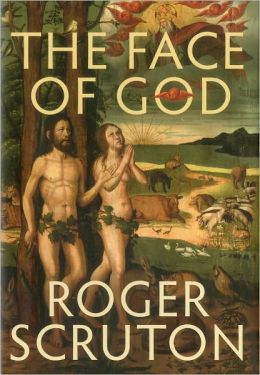

 De Broeders van Sint Jan hebben hun leven aan God gewijd, ten dienste van God en hun naasten. Zij willen leven volgens het Evangelie van Jezus Christus en zich door hun gebed en hun activiteiten inzetten voor jong en oud.
De Broeders van Sint Jan hebben hun leven aan God gewijd, ten dienste van God en hun naasten. Zij willen leven volgens het Evangelie van Jezus Christus en zich door hun gebed en hun activiteiten inzetten voor jong en oud.